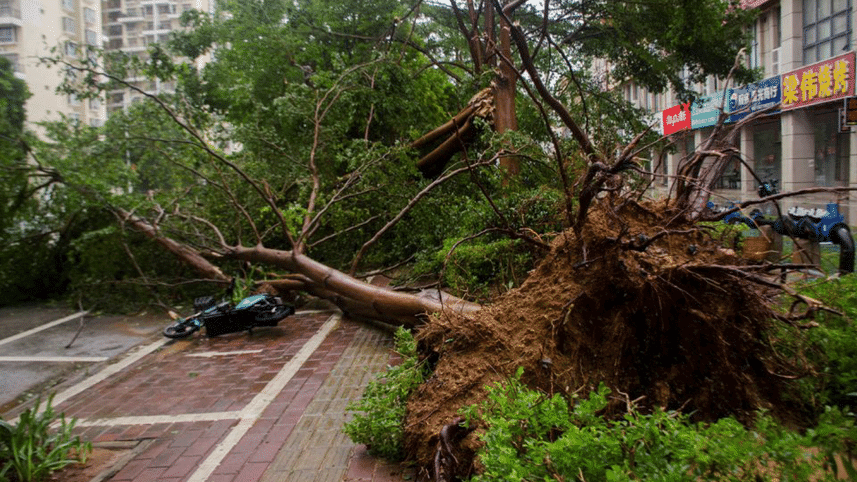China’s economic losses from disasters surge

China's direct economic losses from natural disasters surged to 41.18 billion yuan ($5.74 billion) in July, more than in January to June combined, driven by severe weather as two powerful typhoons hit the country in one month.
The impact of floods, while common in China in summer, has grown more pronounced this year, affecting over 7 million people nationwide in July, when Beijing was struck by the worst rains in 140 years after the capital's hottest June on record.
August, when rainfall usually peaks and summer temperatures soar, is set for further economic impact from floods and heatwaves. Rainfall in northeastern provinces could be as much as 50% higher than normal in August, China's national forecaster have warned.
July losses from Typhoon Talim, which landed in southern China in the middle of the month, were 2.61 billion yuan, while losses from the more destructive Doksuri, the remnants of which are still being felt in northeastern China, reached 14.74 billion yuan as of the end of July, the Ministry of Emergency Management said in a statement late on Friday.
Overall losses, compounded by damage from floods in southwest and northwest China, far exceeded the 38.23 billion yuan in the first half of 2023, and pose an unexpected drag on quarterly growth in the world's second-largest economy, which is already in want of stimulus.
In the northern province of Hebei, over 1.2 million people had been evacuated as of Wednesday due to flooding caused by residual rains from Doksuri.
In the port city of Tianjin, which shares a border with Beijing and Hebei, local authorities have evacuated about 66,000 people as they braced for flooding from upstream rivers.
China's top economic planner on Friday earmarked an additional 100 million yuan to support post-disaster recovery in Tianjin and Hebei on top of the 100 million yuan announced on Wednesday for Beijing and Hebei. The finance and water resources ministries separately on Friday also offered 450 million yuan to support the overall recovery effort.



 For all latest news, follow The Daily Star's Google News channel.
For all latest news, follow The Daily Star's Google News channel.
Comments